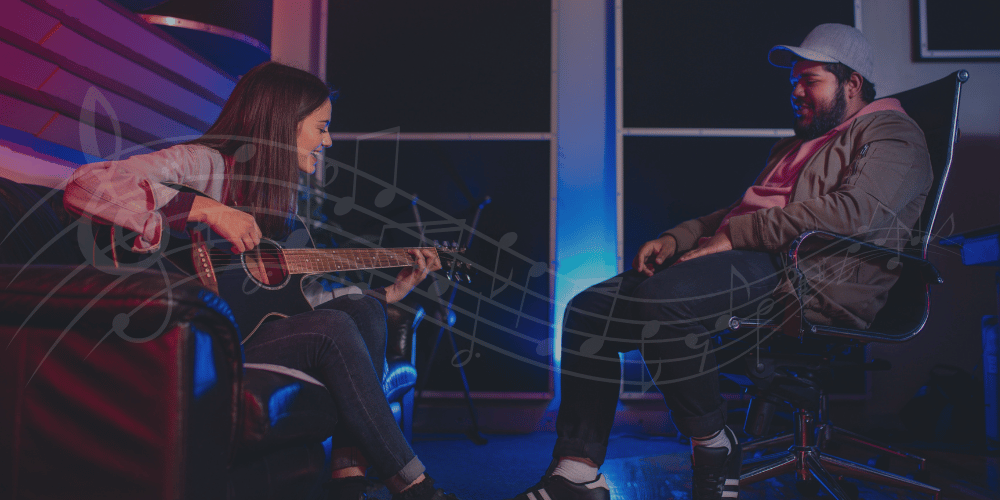Collaboration 101: Working with Other Songwriters
Collaboration can be a transformative experience for songwriters, offering new perspectives, fresh ideas, and a chance to refine your craft. Working with other songwriters can help you break out of creative ruts and develop your skills in ways you might not achieve alone. Here’s a comprehensive guide to successfully collaborating with other songwriters.
1. Finding the Right Collaborators
The first step in successful collaboration is finding the right partners. Here are some tips:
- Networking: Attend local music events, songwriting workshops, and industry conferences. Networking can help you meet potential collaborators who share your passion and style.
- Online Communities: Platforms like Facebook groups, Reddit, and specialized forums (e.g., Songwriter Link) can connect you with other songwriters.
- Music Schools and Classes: Enroll in music courses or workshops where you can meet like-minded individuals.
2. Setting Clear Goals and Expectations
Before you start writing, it’s crucial to set clear goals and expectations for the collaboration:
- Define Roles: Decide who will handle lyrics, melody, harmony, and production. Clarifying roles early on can prevent misunderstandings.
- Creative Vision: Discuss the overall vision for the song, including genre, theme, and mood. Ensure everyone is on the same page.
- Logistics: Agree on the logistics of your collaboration, such as meeting times, deadlines, and preferred communication methods.
3. Embracing Open Communication
Effective communication is key to a successful collaboration:
- Active Listening: Listen to your co-writer’s ideas without interrupting. Active listening shows respect and helps you understand their perspective.
- Constructive Feedback: Offer constructive feedback rather than criticism. Focus on the positive aspects and suggest improvements diplomatically.
- Flexibility: Be open to experimenting with different ideas and approaches. Flexibility can lead to unexpected and exciting results.
4. Leveraging Technology
Technology can facilitate collaboration, especially if you and your co-writer are not in the same location:
- File Sharing: Use cloud-based services like Google Drive, Dropbox, or WeTransfer to share lyrics, recordings, and project files.
- Collaborative Tools: Platforms like Splice, Soundtrap, and BandLab offer tools for real-time collaboration, allowing you to work on the same project simultaneously.
- Communication Apps: Stay connected through video calls and messaging apps like Zoom, Skype, or Slack to discuss ideas and progress.
5. Balancing Creativity and Productivity
Striking the right balance between creativity and productivity is essential:
- Brainstorming Sessions: Start with brainstorming sessions where you generate as many ideas as possible without judgment. This can spark creativity and uncover hidden gems.
- Structured Writing: After brainstorming, organize your ideas into a structured writing session. Focus on developing and refining the best concepts.
- Breaks and Reflection: Take regular breaks to avoid burnout and gain fresh perspectives. Reflecting on your work can lead to new insights and improvements.
6. Dealing with Creative Differences
Creative differences are natural in any collaboration. Here’s how to handle them:
- Compromise: Be willing to compromise and find middle ground. Remember that the goal is to create the best possible song, not to win every argument.
- Neutral Mediation: If disagreements become heated, consider involving a neutral third party to mediate and provide objective feedback.
- Focus on the Song: Always keep the song’s best interest at heart. Prioritize what serves the song rather than personal preferences.
7. Legal and Financial Considerations
Ensure you address the legal and financial aspects of your collaboration:
- Split Sheets: Use split sheets to document the agreed-upon ownership percentages of the song. This can prevent disputes over royalties and credits.
- Contracts: For more formal collaborations, consider drafting a simple contract outlining each party’s rights and responsibilities.
- Publishing: Decide how you will handle publishing and distribution. Will you pitch the song to publishers, release it independently, or use a different strategy?
Conclusion
Collaborating with other songwriters can be an enriching experience that enhances your creativity and productivity. By finding the right partners, setting clear goals, communicating effectively, leveraging technology, balancing creativity and productivity, dealing with creative differences, and addressing legal and financial considerations, you can ensure a successful and rewarding collaboration. Embrace the collaborative process, and you’ll find that working with others can open up new horizons in your songwriting journey.

